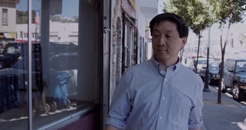 Monastery 2.0
Monastery 2.0
From a film by Seattle Pacific University
In the past, some monasteries, communities of Christians, have focused on interacting with the local communities to provide services, such as teaching, medical care, or evangelism, supporting themselves through work. What would that look like today?
An example is Dayspring, a San Francisco-based technology firm specializing in web and app development, mobile design, and salesforce consulting. Answering a call to purposeful reconciliation, Dayspring relocated from the downtown office area to Bayview, an underserved community where tourists (and tech firms) rarely venture. Since the move, Dayspring has worked to build deep relationships with the community and has started and/or supported numerous grass roots efforts to serve its neighbours.
Dayspring was established with a set of of core values where they said, okay, even if these values penalised us in the market, we're still going to hold to them. Justice, generosity, integrity, mercy, dependence on God, partnership in the gospel, those core values were set out up front. Even if these lose us money, even if these cause us to go under, we're going to hold to these.
Dayspring was in downtown San Francisco - a professional business setting but not really a neighbourhood. It doesn't have that kind of network of relationships that is required for a neighbourhood. However such a financial district was perfect for a professional consulting firm. Their lease was expiring and they were asking the question, "What does it look like for Dayspring to practise being a good neighbour?".
They decided to relocate to Bayview. The Principal of the company, Chi-Ming Chein, says about the area, "I had actually grown up being told, you don't go to the Bayview, it's dangerous. It's the place that gets left off of tourist maps. Literally if you look a tourist map of San Francisco, it just wouldn't be on there. It has higher unemployment, about double the rest of the city. It has higher levels of poverty."
"We wanted to come as people and people who are interested in other folks in the neighbourhood, things that have already been going on. What we recognise is that God has been here at work for a long, long time. So we really see ourselves participating in the work of God. The company gave me a gift of sabbatical and one of the things I thought to do was to spend two days a week just walking the streets. It was based on the idea that in order to love a place, you need to know it. In order to know it, you need to learn it, so you got to spend time. So I popped my head in wherever there appeared to be a welcome seeing if there were people of peace." [WOTS - See Reaching the marketplace - a Luke 10 model].
Out of those conversations, Chi-Ming heard that one of the significant challenges small business owners in the area face is getting capital. because they don't necessarily have the kind of credit history for the size of loan that they're looking for. So they started the Neighbour Fund. The idea of Neighbour Fund is to be good neighbours by participating in the economy of the place. Seeing money as part of how they could join the life of the community. They don't look for credit scores. They want them to have a meal together, hear their story, share their own stories.
Part of being a business is that they are interconnected with everyone, every organisation around them. And that they're not just to gather as much as possible for themselves, for their own profit, but to build relationships. At the core, they're people and other folks are people too. They are investing in the ecosystem in the Bayview because they think that there's a way in which a business in the marketplace ought to live out a calling to be Christian.
Watch an 8 minute video about Dayspring here.
Retweet about this article:
From a film by Seattle Pacific University, 27/06/2018